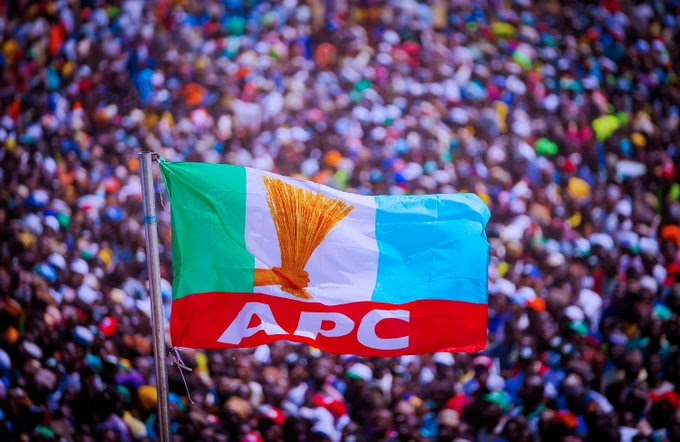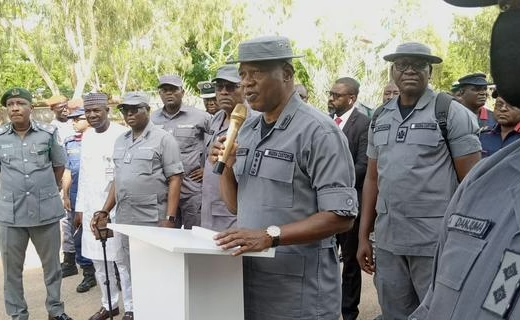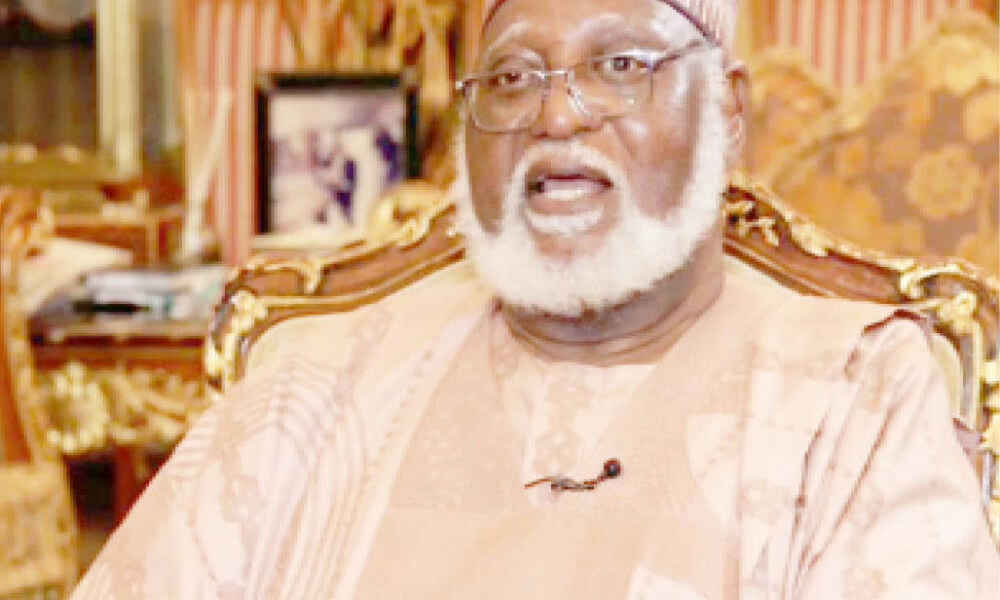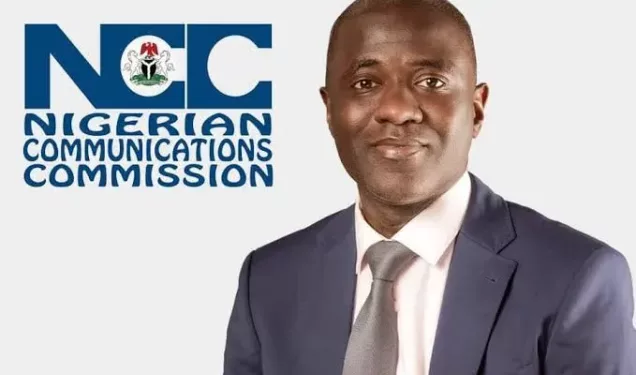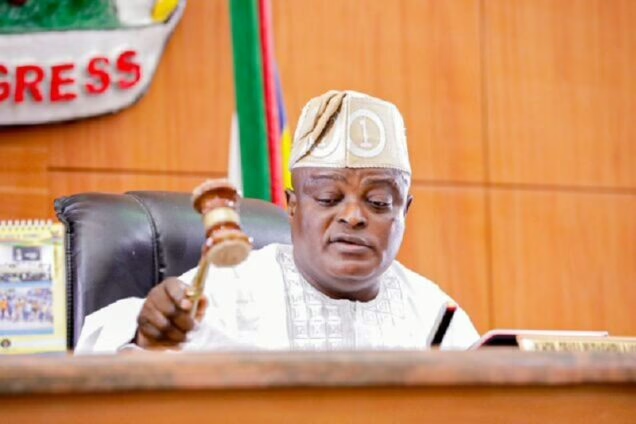By Omoniyi Salaudeen


In a couple of days, President Bola Ahmed Tinubu will be one year in office. As a matter of convention, he will be expected to present the scorecard of his achievements for the assessment of the general public.
And rightly so because, in the last 12 months, tax-payers have been either persuaded or compelled to make so much sacrifice for the revival of the prostrate economy allegedly inherited from his predecessor, Muhammadu Buhari, without a proportionate improvement in the general well-being of the citizenry. On this auspicious occasion, they deserve to know what the government has done with the monies generated so far under the burden of multiple taxations, fuel subsidy removal, electricity tariff hikes, foreign exchange rates unification, Value Added Tax, hidden and unhidden bank charges, arbitrary increase in the pump price of petroleum products, among others. As they say in local parlance, “To whom much is given, much is expected.”
Due to the challenge of the economy, the Tinubu administration introduced a new paradigm of revenue mobilization, focusing on aggressive tax policy to create enough pool of funds to finance its development projects.
However, by accident or deliberate design, the initiative has brought more pain than relief to the ordinary people who are now groaning under the hardship of fuel subsidy removal, high food inflation, the depreciating value of the naira, and other unintended consequences of the foreign exchange rates unification introduced by the government.
In a sharp departure from his “Let the poor breathe’ campaign slogan which resonated across the length and breadth of the country during electioneering, the poor are now being choked by the heavy burden of multiple taxations.
The latest in the series of surreptitious taxes imposed on the populace notably bank customers is the suspended controversial Cyber security levy introduced by the Central Bank Nigeria (CBN).
At the level of manufacturing industries, the list of taxations that have been directly or indirectly passed on to the end users thereby fueling the current rate of spiral inflation includes, among others, companies’ income tax, Nigeria Police Trust Fund levy, National Agency for Science And Engineering Infrastructure levy, tertiary education tax, Industrial Training Fund, output VAT, Non-recoverable VAT, and Custom duties. Others are business premises tax, sanitation fees, ecological fees, sanitation levy, signage and advert tax, annual operating levy, NITDA contribution, PAYE, effluent discharge levy, tenement rates, infrastructure maintenance, building fitness, right of way tax, bridge crossing levy, employment development levy, withholding tax, infrastructure maintenance and community access fees to mention, but a few.
Yet, the Fiscal Policy and Tax Reform Committee set up by President Tinubu to streamline tax collection and administration, in its recently submitted report on National Tax Policy (NTP) is proposing a further increase in VAT to generate more revenue.
The move was predicated on an earlier report by the Economic Intelligence Unit urging the Federal Government to raise the VAT to 15 per cent from the current 7.5 per cent to enable it to fund its fiscal deficit and debt servicing.
While experts believe that imposition of multiple taxations could damage the economy by creating a disincentive for investment, some President’s advisers are of the view that “Nigeria ranks very low on the global ease of paying taxes as the country’s Tax to GDP ratio is one of the lowest in the world and well below the African average.”
Special Adviser to the President on Revenue, Mr Adelabu Zacch Adedeji, blamed the Federal Government’s over-reliance on borrowing to finance public spending on the current low tax-to-GDP ratio.
According to him, President Tinubu recognizes the importance of a sound fiscal policy environment and an effective taxation system for the functioning of the government and the economy.
He said: “Nigeria ranks very low on the global ease of paying taxes while the country’s Tax to GDP ratio is one of the lowest in the world and well below the African average.
“This has led to an over-reliance on borrowing to finance public spending which in turn limits the fiscal space as debt service costs consume a greater portion of government revenue, annually resulting in a vicious cycle of inadequate funding for socio-economic development.
“While some incremental progress has been recorded over the years, the outcomes have not been transformative enough to change the narrative.”
Adedeji outlined the key challenges in Nigeria’s tax system, including multiple taxes and revenue collection agencies, fragmented and complex tax system, low tax morale, high prevalence of tax evasion, high cost of revenue administration, lack of coordination between fiscal and economic policies, and poor accountability in the utilization of tax revenue.
On August 8, 2023, President Tinubu inaugurated the Presidential Fiscal Policy and Tax Reforms Committee led by Mr Taiwo Oyedele, a fiscal policy partner and Africa tax leader at PriceWaterhouseCoopers.
At the inauguration ceremony, Tinubu said: “To ensure seamless implementation, the Committee shall be empowered not merely to make recommendations, but also to provide practical support to the government in the execution and delivery of the recommended changes.
“The Committee is expected to achieve its mandate within one year. In the first instance, they are expected to deliver a schedule of quick reforms that can be implemented within 30 days.
“Critical reform measures should be recommended within six months and full implementation will take place within one calendar year.”
The committee comprising experts from both the private and public sectors has the mandate to harmonise and coordinate taxes, and revenue administration.
This is intended to enhance revenue collection efficiency, ensure transparent reporting, and promote the effective utilization of tax and other revenues to boost citizens’ tax morale, foster a healthy tax culture, and drive voluntary compliance.
The 30-day Quick Report Oyedele presented to President Tinubu on October 24, last year, recommended merging of over 200 taxes being paid by Nigerian businesses into 10, arguing that multiple taxations had shrunk the Federal Government’s internal revenue pool rather than increase it.
He said that only 10 taxes generated 96 per cent of revenues.
Talk is now at an advanced stage to present the documents to the National Assembly by the end of the third quarter.
“We should have them enacted into law so we can give reasonable notice to the public, businesses, and individuals before commencement for many of them kick off in 2025. But where we have executive orders and directive regulations that don’t require enactment into law, we just need the ministers to sign,” he added.
Regardless, experts have warned the Federal Government against its seemingly insensitive response to the current trend of multiple taxations.
There is an argument among some particular schools of thought which believe that over-taxation cannot help developing countries develop their economies. Rather, tax cuts will.
Nigeria is one of the African countries having the highest tax rates in the world and paradoxically, one of the economies with the lowest wage workers globally.
As of today, the proposed minimum wage remains N30,000, while the new offer by the Federal Government’s negotiation team is N48,000.
According to this point of view, the high tax rates policy of the Tinubu administration will make it impossible to build capital. The more dangerous of it all, they say, is the possibility of killing initiative on economic development, as it will leave the country at the mercy of loans and consequently create an endless cycle of debt.
The most damning verdict is for the people to live a lifetime of unemployment, diseases and permanent poverty.
Despite the aggressive pursuit of the current tax policy, Nigeria is now said to be weighed down by a high debt burden amounting to N97.34 trillion and it is expected to rise to over N207 trillion by the end of this year following the approval of fresh borrowings.
Already, there is a proposal to access an additional N20 trillion from the pension fund for the government plan to executive more infrastructural projects.
Whatever the merit of the initiative, for some pundits, this is a clear and present danger for the senior citizens who have retired, but depend on their stipends for survival.
Chief Ckekwas Okorie, an economist and a respected leader of thought in the Southeast, while expressing support for the administration’s commitment to infrastructure investment, cautioned against over-taxation of the ordinary people who are currently grappling with the hardship of fuel subsidy removal, as well as food inflation.
Speaking with Sunday Sun in a telephone conversation, he said: “There is no doubt that multiple projects are going on across the country and new ones are being awarded. Most economies grow through infrastructural development. I have seen the sincerity of this government in deploying monies realized into infrastructural development. For instance, I am totally in support of the Lagos/Calabar Coastal Highway. It is a legacy project that if not done now cannot be done at any other time because the cost can never be less at any other time. There is no other time that the cost will be less than what it is now.
“However, I am very surprised by the multiple taxations people are complaining about. What the president said repeatedly was to harmonise these multiple taxation system and eliminate unnecessary duplication that tends to bring more hardship to the people. He also said repeatedly that he was going to widen the tax net. That, to me, means that more people who have been evading taxes will now be brought in to begin to pay taxes. I didn’t see widening the tax net as increasing taxes or multiplying the ones people paid.
“So, the approach of taxing even the poor people in a manner that is happening now is surprising to me. That is multiplying the hardship they are already grappling with and it is not healthy for the country because a hungry man is an angry man. We cannot allow that to continue until it gets to a point we will not be able to control their anger. The removal of subsidy has already increased money available in the coffers of the Federal Government. That should be able to help to reduce other burdens on the people.
“And I agree with the school of thought that says multiplication of taxes will not develop the economy because multiplication of taxes means less money in the hands of the people. It means less purchasing power and less incentive to invest because nobody is buying. This is already reflected in a few manufacturing industries that have their warehouses filled with goods that have not been sold out. Nigeria has the largest market in Africa, but using taxation in a manner that is being used now is rather killing the economy. Multiple taxation is injurious to the economy and the social fabric of the country, which can result in a breakdown of law and order.
“Beyond that, the government has not done anything visible to put a check to the menace of herdsmen. And that is the worst thing that has happened to this government. Food security is no longer guaranteed because herdsmen will not allow farmers to go and farm to produce stable food and cash crops.”
Prof Tayo Bello, in his perspective, faulted the policy of multiple taxations, while the national minimum wage for the workers remained stagnated.
He said: “The government is looking for a survival mode. You will appreciate that the government needs a lot of funds to execute whatever projects embarked upon. However, people are already overburdened by the multiple taxation policy. Yet, they have not been able to resolve the issue of the minimum wage. The Labour submitted a proposal of N615,000 while the government’s negotiating team recommended N48,000. The question is: What have they done with all the monies they have realized so far?
“If taxes are properly collected and the cost of taxation is accurate, there won’t be any problem. But the problem is that this government cannot justify all the money it has realized so far. There is misappropriation somewhere.”
A chieftain of the Peoples Democratic Party (PDP), Alhaji Shuaib Oyedokun, noted the dilemma of the government as a result of the alleged bastardization of the economy by the previous administration, stressing the need for sacrifice.
“I have to be very frank; I am not supporting the government. I am talking in pain because whatever suffering people are going through now does not exempt me. I believe we are learning. Things had gone bad during the last administration; we need to make sacrifices to correct some of them,” he posited.


